You see Xolisani, it’s about us failing to act in THREE years and not THREE months
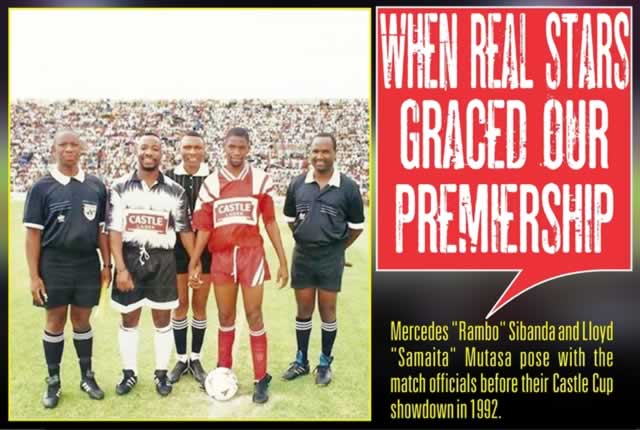
 Sharuko on Saturday
Sharuko on Saturday
THE World Cup is a grand football festival for the entire globe even the rogue state of Rhodesia once took part, back in ’69, not as part of the African family, but via the back-door of the Asia/Oceania qualifiers.
Having been expelled from CAF, because of the rebel white minority government, Rhodesia had to be squeezed into the Asia/Oceania group, with their ’70 World Cup qualifier against Australia being played in Mozambique.
The first two matches, battled over four days in November ’69, ended in a deadlock, largely because of an inspired performance by Rhodesian ’keeper, Rob Jordan, and so desperate were the Aussies, they ended up hiring a Mozambican sangoma to curse the ’keeper.
As fate might have it, Jordan was injured in the deciding third match, and the Aussies powered to a 3-1 victory on November 29, ’69, to progress to the final qualifying round where Israel lay in wait.
The Aussies refused to pay the sangoma, even though he had delivered by cursing the inspirational Jordan, and he promised them he would hit back by using his magical powers to destroy their World Cup dreams.
And that’s what happened, just two weeks later, as the Aussies were eliminated by the Israelis who grabbed the ticket to the ’70 World Cup finals in Mexico.
Soon, Rhodesia was also expelled from FIFA and it was not until our Independence, in 1980, when we were readmitted into the global football family, that we returned to the World Cup with a showdown against Cameroon in ’80.
We lost 0-2 in Cameroon and although David Muchineripi’s goal gave us a 1-0 win before a full-house at Rufaro, it wasn’t enough to overhaul the deficit, and while we were out, it felt good to be back in the trenches fighting for a place at the greatest sporting show in the world.
And, for the last 35 years, we have consistently been part of those battles, until this year when — for the first time since our readmission into the FIFA family — we were thrown out of the qualifiers for failing to pay our former national team coach.
It means that, when FIFA conducts the draw for the 2018 World Cup finals in St. Petersburg, Russia, today, our name will be the only one missing, among the African representatives, in a throwback to the dark years, throughout the ’70s, when the politics of the racist minority Rhodesian regime, kept us out of the grand show.
It will also be a chilling reminder of how the soul of our national game has been devoured, in the past few years, when it has been crippled by an administrative paralysis that has left it being a caricature of the vibrant sporting discipline that held this country spellbound when the Dream Team made us feel so proud to be Zimbabweans.
That we are the only ones missing, even as the likes of South Sudan, a country torn apart by relentless turmoil, take part, will really hurt us, deflate our egos and remind us of how our national game has become such a walking shadow, a pathetic sporting discipline that has wasted its hour on the stage and now can’t be heard anymore, a tale told by an idiot, full of sound and fury but signifying nothing.
That we are the only ones missing out, while all our African brothers are part of the show, is a disgrace, and that it has happened on the 15th anniversary of the National Sports Stadium disaster, is an insult to all those people who perished while supporting the cause of this great nation in that World Cup qualifier against Bafana Bafana.
That we find ourselves being portrayed as outcasts, barred from a grand festival where everyone is attending, simply because we failed to manage our affairs, is an aberration, an insult to the spirit of Reinhard Fabisch, the coach whose technical and tactical brilliance transformed us into super athletes who came within just 90 minutes of qualifying for the World Cup finals in ’94.
That we find ourselves on this isolated island of pain, while the rest continue to indulge in the romance of battling for a place at the next World Cup finals, and all the excitement and memories that this creates, is an insult to the brave men who, in the past 35 years, fought gallantly on the fields of Africa, and beyond, just to try and get this nation to the Promised Land.
Gallant Warriors like Bruce Grobbelaar, who was struck by that object, during that tempestuous World Cup game in Cairo against Egypt, but — even with a heavily bandaged head — decided to carry on, fighting for his nation, because he loved this country and the World Cup represented the ultimate quest for greatness in this game.
Great Warriors like Agent Sawu, who, during a golden run in the ‘90s, kept popping up at the right place, at the right time, to score priceless goals for this country, including one in the very last minute against Cameroon, which gave us a 1-0 win at the National Sports Stadium, before a record 71 160 fans.
Those tears, which he shed that day long after the game had ended, as he cried for his country, overwhelmed by the sheer magnitude of what he had done, not for himself but for his nation, now appear to have been for nothing if we embrace the stupidity of not placing value to the quest for a place at the World Cup finals and, even without kicking a ball, we are being eliminated.
It’s a shame that we won’t be part of the 2018 World Cup and even a greater shame that, when the history of this tournament is written, there will be always that accompanying phrase that “Zimbabwe were expelled”, a timeless reminder of that moment when our football sank to its knees.
IT’s NOT ABOUT QUALIFYING
BUT PARTICIPATING
The worst reaction to our World Cup plight came from those who were questioning why we should mourn about our expulsion from a tournament where the Warriors were not going to qualify for its finals.
If the World Cup was all about qualifying for the finals, where only 32 teams can play, why then would hundreds of countries, including South Sudan, be playing in the qualifiers when they know they will never make it?
Yes, qualification for the finals is the ultimate quest, for nations like ours, but just playing in the tournament is also important because sport is bigger than just being a parade of winners but also a demonstration of the efforts of the losers.
The Dream Team didn’t make it to the ’94 World Cup finals but they remain heroes, among millions of Zimbabwean football fans, because they were men who gave it all they had for the sake of their nation, for you and me, and in those trenches they fought fire with fire and, during one golden spell, went for about a dozen games without losing a match.
The memories that they created, which have refused to be washed away by time, were not knitted by a team which, ultimately, qualified for the World Cup finals, but one that distinguished itself in that search for a ticket to that showcase.
Sawu isn’t a lesser hero, simply because, in the end, his goals were not enough to power us to the World Cup finals in the United States in ’94, but he remains our superstar because, when he was banging those goals, we all felt proud that he was one of us, fighting our cause, and that we, ultimately didn’t make it, hasn’t diluted his heroic status.
Paul Gascoigne turned himself into an icon of English football and a darling of the Three Lions’ fans with those tears, in that World semi-final against Germany, when his yellow card ruled him out of the final should his team pass the test and qualify for the grand match.
The fact that England stumbled in that semi-final, beaten by the Germans on penalties, didn’t make Gazza a lesser hero and, 25 years after his tears caught the imagination of his nation, they are still to find another World Cup hero as big as Gazza in England.
There was a huge crowd at Rufaro on Sunday, backing the Young Warriors in their Olympic Games qualifier against South Africa, even though there was no guarantee that our men will make it from this contest, let alone winning the ticket to be one of the teams in Rio de Janeiro next year.
That’s what the fans live for, backing their country in sporting contests against other nations, and there was a time, in the ’90s, when the Warriors had the highest average attendance figures at home throughout Africa, and that’s a team that had never qualified for the Nations Cup finals, back then, let alone the World Cup finals.
When you take that away from the fans, as is the case with our situation with this World Cup, you destroy their spirit, you rob them of the chance to go and support their nation, taking on other nations, the joy they derive on the occasions when the Warriors win and the memories created by those battles.
If the World Cup was all about qualifying for the finals, would Lesotho or Swaziland have entered the qualifiers, would San Marino have entered the qualifiers, would South Sudan have entered the qualifiers and would India, whose one billion people play more cricket than any other sport, have entered the qualifiers?
Of course, they wouldn’t but, then, the World Cup is more than qualifying for the finals, it’s a whole lot more — our fans getting a chance to cheer their men in action, uniting supporters who, week in and week out are divided by their club affiliations, into one group, our players getting the exposure of playing against others, in the fight for their motherland, and that special bond it creates between the supporters and the players.
Yes, chances are that we might not have made it to the World Cup finals in Russia but, as our skipper Willard Katsande said this week, who knows what would have happened if we had participated?
No one knows and that’s why it’s very painful.
NO XOLISANI, IT’s NOT ABOUT THE ECONOMY
Xolisani Gwesela, the ZIFA spokesman, is a man I respect a lot because of the spirited efforts that he puts in to try and make things work at his organisation and how he tries, very, very hard, to keep the media informed of what is happening.
I have told him, repeatedly, that he has my respect because he tries, to make that extra effort, to keep the communication lines between ZIFA and the media open and he is the good bloke who will always return your call.
That he works in a difficult environment is not even questionable but he tries, very hard, to get things done and moving.
But I felt that his reaction, to confirmation that we are out of the next World Cup, shifting the blame on the government and companies for not coming on board to help ZIFA when they sent their SOS, was misplaced.
For Xolisani to try and reduce this saga to just the last four months, since FIFA announced their decision to expel us, is ridiculous.
I will refer him to the FIFA statement when the announcement was made that we are out of the next World Cup.
“The expulsion comes as a result of the non-payment of an outstanding debt by ZIFA to the coach José Claudinei Georgini FOLLOWING A DECISION PASSED ON 15TH AUGUST 2012 BY THE SINGLE JUDGE OF FIFA’S PLAYERS’ STATUS COMMITTEE,” read the statement.
“As the single judge’s decision was final and binding and ZIFA did not settle its debt, disciplinary proceedings for failure to respect a decision (in application of Art. 64 of the FIFA Disciplinary Code) were opened against ZIFA upon the request of the coach.”
Clearly, Xolisani, in August, 2012, that’s three years ago, ZIFA knew of this case and its possible implications and the economy, back then, was not as distressed as now and Mbada Diamonds, then the majority football sponsor, would certainly have settled this case.
“The FIFA Disciplinary Committee passed a first decision in April 2013, by means of which in particular, and in addition to receiving a fine, ZIFA was granted a 60-day period to settle half of its debt to the coach and a 120-day period to settle the remainder of the debt,” continues the FIFA statement.
“ZIFA WAS WARNED THAT, IF THEY DID NOT PAY WITHIN THE GRANTED PERIODS — THE CASE WOULD — UPON THE EXPRESS WRITTEN REQUEST OF THE CREDITOR — BE RESUBMITTED TO THE FIFA DISCIPLINARY COMMITTEE FOR THE POSSIBLE IMPOSITION OF HARSHER SANCTIONS, WHICH COULD LEAD TO EXPULSION FROM A FIFA COMPETITION.”
If this was happening in April 2013, which is more than two years ago, and we were not appealing against that decision, or making efforts to ensure that we raise the funds needed to pay Valinhos, why should we cry foul and try and reduce this saga to the last four months?
“In view of the fact that ZIFA did not settle its debt to the coach, and following the request of the coach, the case was presented again before the FIFA Disciplinary Committee, which rendered a second decision,” the statement continues.
“In its decision, the FIFA Disciplinary Committee granted ZIFA a final period of grace of 60 days to settle the debt with Mr Georgini. Additionally, ZIFA was warned that, if the debt was not settled within the granted period (and upon the presentation of a formal claim by the creditor), then, in addition to the imposition of a fine, they would be expelled from the preliminary competition of the 2018 FIFA World Cup Russia.
“ZIFA was informed that the expulsion would be ordered automatically without any further decision needed from the FIFA Disciplinary Committee and, once more, ZIFA DID NOT APPEAL THE DECISION.
“Given ZIFA’s failure to make any payment within the granted periods and the request presented by the creditor, the FIFA Disciplinary Committee — in line with its second decision — ordered the expulsion of ZIFA from the preliminary competition of the 2018 FIFA World Cup Russia.”
So, you see Xolisani, it’s about us failing to act in THREE years and not THREE months.
To God Be The Glory!
Come on United!!!!!!!!!!!!!!!!!!!!!!!!!!!!!!!!!
Chicharitooooooooooooooooooooo!
Text Feedback — 0772545199
WhatsApp Messenger – 0772545199
Email — [email protected]
Skype — sharuko58
Like my Facebook page, ROBSON SHARUKO JOURNALIST, follow me on Twitter @Chakariboy, interact with me on Viber and on ZBC’s weekly television football magazine programme, GamePlan on Monday nights, or read my material in The Southern Times.


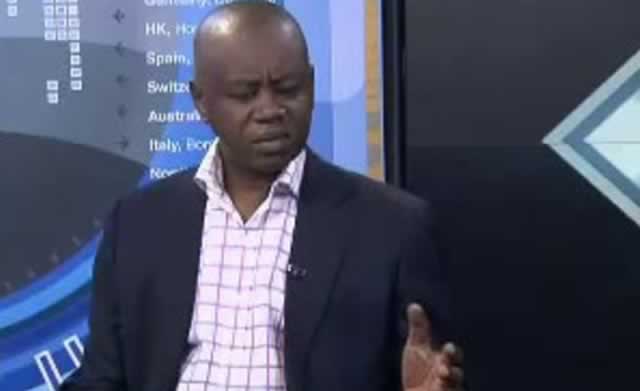
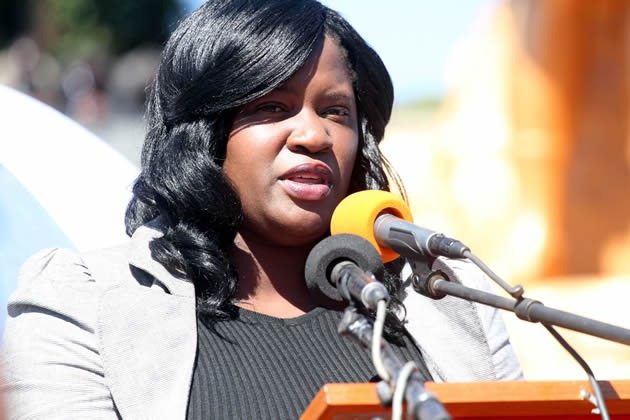
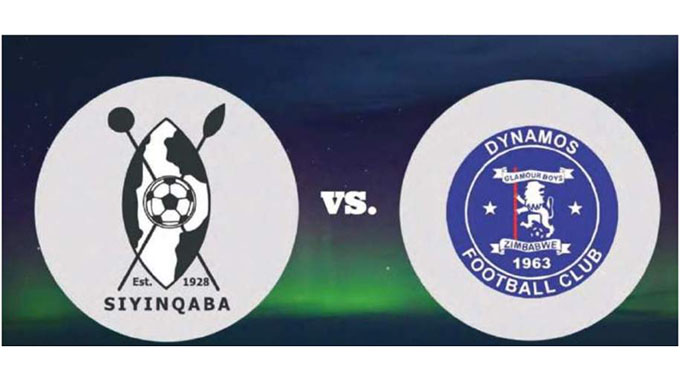
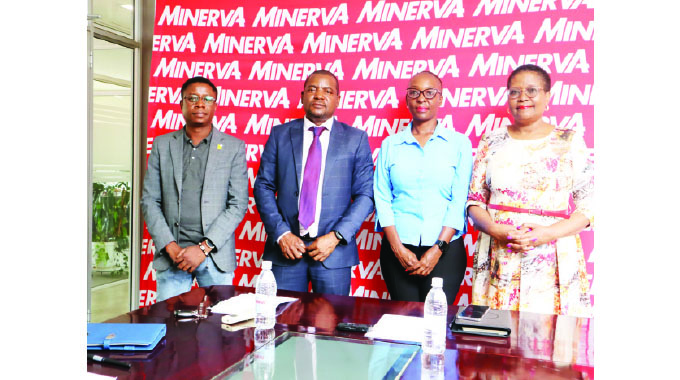
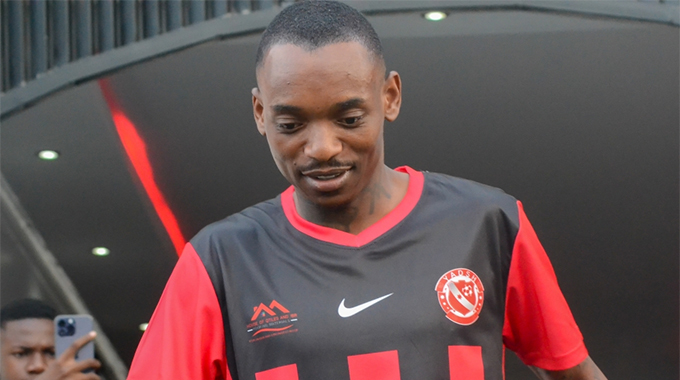

Comments